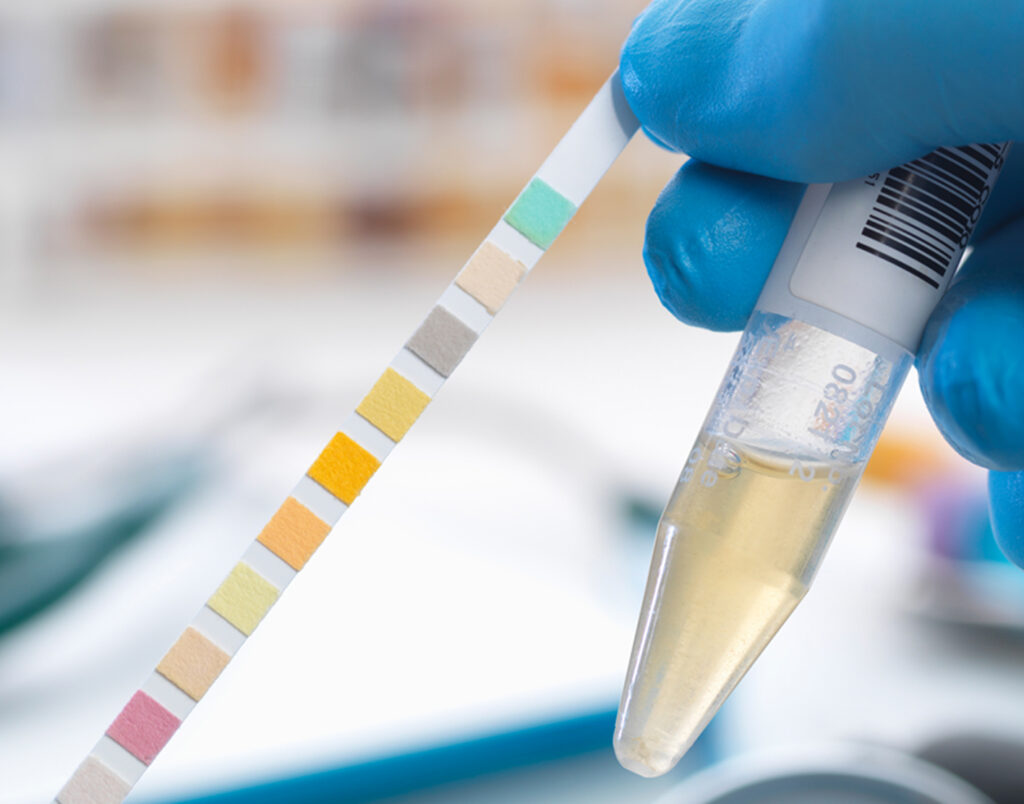how often to check ketones in urine Ketones in urine: signs, tests, and results
When it comes to monitoring your ketone levels, it is important to understand what they are and why it is necessary to check them regularly. Ketones are chemicals produced by your liver when your body lacks enough insulin to convert glucose into energy. This usually happens when your body is in a state of ketosis, a metabolic process where it uses stored fat for energy instead of carbohydrates.
Ketones in Urine: Signs, Tests, and Results
 One common way to check for ketones is through urine analysis. By collecting a urine sample and using a ketone test strips, you can determine the presence and the level of ketones in your body. These strips change color depending on the amount of ketones detected. The darker the strip, the higher the ketone level.
One common way to check for ketones is through urine analysis. By collecting a urine sample and using a ketone test strips, you can determine the presence and the level of ketones in your body. These strips change color depending on the amount of ketones detected. The darker the strip, the higher the ketone level.
Checking your urine for ketones is especially important for individuals with diabetes. If you have diabetes, high ketone levels could be a sign of diabetic ketoacidosis (DKA), a serious condition that can be life-threatening if not treated promptly.
Monitoring your ketone levels can help you make necessary adjustments to your diet and lifestyle. By regularly checking your urine for ketones, you can ensure that your body is efficiently utilizing fat for energy and maintaining a state of ketosis. It can also help you identify any potential issues or imbalances in your diet that may be hindering your progress.
Best Time to Test Ketones in Urine & How Often to Do It?
 When it comes to timing, the best time to test for ketones in urine is usually in the morning. This is because your body has had several hours of fasting during sleep, which allows ketone production to increase. Testing in the morning will provide you with a more accurate reflection of your overnight ketone levels.
When it comes to timing, the best time to test for ketones in urine is usually in the morning. This is because your body has had several hours of fasting during sleep, which allows ketone production to increase. Testing in the morning will provide you with a more accurate reflection of your overnight ketone levels.
As for how often you should test your ketone levels, it depends on your specific goals and circumstances. If you are following a ketogenic diet strictly, it is recommended to test your ketones daily or a few times a week to ensure you are maintaining a state of ketosis. On the other hand, if you are simply looking to monitor your overall health and well-being, testing once or twice a week may be sufficient.
Remember that ketone levels can fluctuate throughout the day, so it is essential to establish a consistent routine when testing. This will help you establish a baseline and track any changes or patterns over time.
In conclusion, monitoring your ketone levels through urine analysis is an important practice for individuals following a ketogenic diet or managing diabetes. By regularly testing your ketone levels, you can ensure that your body is efficiently utilizing fat for energy and maintain a state of ketosis. Remember to test in the morning for more accurate results and establish a consistent testing routine. Stay mindful of any significant changes in your ketone levels and consult with a healthcare professional if you have any concerns or questions.
If you are searching about Ketones in Urine: Signs, Tests, And Results | MantraCare you’ve came to the right web. We have 5 Images about Ketones in Urine: Signs, Tests, And Results | MantraCare like Ketones in Urine: All You Need to Know | H.V.M.N. Blog, Best Time to Test Ketones in Urine & How Often to Do It? and also Best Time to Test Ketones in Urine & How Often to Do It?. Read more:
Ketones In Urine: Signs, Tests, And Results | MantraCare
 mantracare.orgurine ketones tests mantracare
mantracare.orgurine ketones tests mantracare
Ketones In Urine Child | DiabetesTalk.Net
 diabetestalk.netketones urine diabetes diabetestalk important children type
diabetestalk.netketones urine diabetes diabetestalk important children type
Best Time To Test Ketones In Urine & How Often To Do It?
 vegketodiet.comKetones In Urine: All You Need To Know | H.V.M.N. Blog
vegketodiet.comKetones In Urine: All You Need To Know | H.V.M.N. Blog
 hvmn.comurine ketones ketone ketosis hvmn ketozila
hvmn.comurine ketones ketone ketosis hvmn ketozila
How To Test Your Urine For Ketones
:max_bytes(150000):strip_icc()/how-to-test-your-urine-for-ketones-2241626_V2-01-a98f35ca2f6d4640b76a55d5ffb912ce.png) www.verywellhealth.comurine ketones ketone strips testing detect verywell verywellhealth
www.verywellhealth.comurine ketones ketone strips testing detect verywell verywellhealth
Ketones in urine: signs, tests, and results. How to test your urine for ketones. Ketones urine diabetes diabetestalk important children type